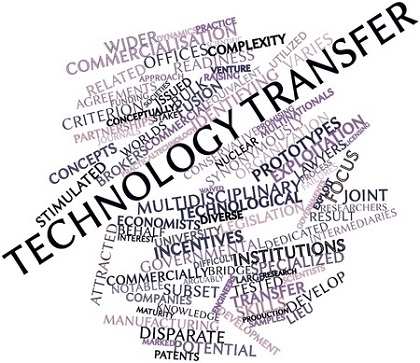Technology License Agreements and Transfers
The legal system of intellectual property rights views innovative and creative output as valuable, tradeable assets. In today's highly competitive marketplace, more and more companies rely upon new and improved technology to obtain a competitive advantage. This technology can be acquired either through research and development undertaken by an individual or organization, or by acquiring and/or licensing technology developed by others.
Intellectual property rights can be bought, sold, or given outright (an "assignment" or "transfer"), or they can be exchanged for a period of time for compensation or other consideration (a "license"). Whether a prospective technology acquirer or acquiree would choose a transfer or a license often depends on the needs of both parties to the transaction.
Technology Licenses
A licensing agreement gives the licensee the right to make, use, and sell products incorporating the intellectual property in a specified manner. Licenses can designate restrictions on the permission, such as limiting the permission for a specified time, to a specified region, or to a specified field of use. The licensor continues to have the proprietary rights over the technology and has only given the defined rights outlined in the license agreement. Licenses can also be exclusive or non-exclusive to the licensee.
Technology license agreements are almost never as straightforward as they seem.
The parties to a licensing agreement enter into a relationship, usually for a certain length of time. It pre-supposes a continuing interaction where the licensor and licensee work towards realizing their common goal, which is to effectively use the technology for their mutual benefit. Assuming that the relationship is successful, and therefore profitable, both the licensor and licensee would be financially compensated.
The technology sought to be licensed may be protected by one or more patents, and there may be other intellectual property rights associated with the technology, such as trademarks protecting the brand or name of the company, copyrights protecting documentation, and trade secrets protecting a whole host of confidential information. Furthermore, it is possible that the effective commercialization of a targeted patented technology depends on other patented technologies for which licenses would be be necessary.

Technology Transfers and Assignments
In contrast, in an assignment, the IP rights for a technology pass from seller to buyer permanently and completely; it is a one-time activity. There are typically only a few continuing obligations in the relationship between the seller (assignor) and the buyer (assignee). Frequently, such transactions involve a one-time transfer of funds, but financial compensation might also be entirely or partially deferred and may be contingent upon other factors (such as the success of the commercialization). A technology owner who has no experience in bringing a product to market and who is not interested in being involved in product commercialization may choose to find a buyer for the technology and to complete the whole transaction.
Complicating Factors
There may also be a variety of other concerns relevant to the particular business relationship between the parties themselves or other parties. Factors that may merit assessment include, for example, the exact manner of compensation (e.g., royalties, lump sum milestone payments), whether the license includes the ability to sub-license the technology, tax issues, audit rights, bankruptcy protection, and the security interests of creditors.
Let me help you assess these issues and find the best solution for your business, whether you are a private inventor, buyer, or business licensee or licensor.
